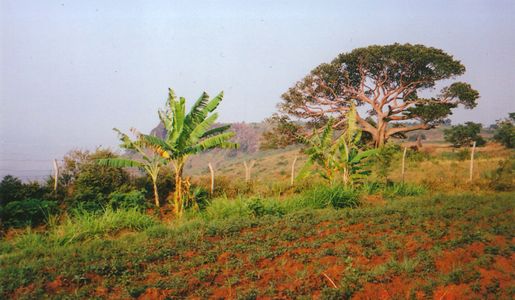CFLP, ASC Host Workshop on Land Mortgage

The Boston University Center for Finance, Law & Policy hosted an April 14, 2016 Financial Inclusion Workshop, “Mortgage Across Cultures: Land, Finance, & Epistemology,” at the BU African Studies Center (ASC), an affiliated center of the Frederick S. Pardee School of Global Studies. The all-day workshop was co-organized with the ASC and the BU Anthropology Department.
The workshop included presentations by a group of renowned scholars from the United States and Europe, offering interdisciplinary insights into land tenure and rural borrowing issues. The workshop was co-organized by Daivi Rodima-Taylor, senior academic researcher of BUCFLP and research affiliate at the ASC, and Parker Shipton, a Professor of Anthropology and Research Fellow in African Studies, and was part of the BUCFLP Financial Inclusion initiatives that study the access of the poor and unbanked to a better financial life.
In Africa south of the Sahara, only about a fifth of the population partakes of the formal financial system through banks or comparable institutions. Many more people have access to land, and land access remains in the center of most of their livelihoods. Recent economic and political changes have fueled uncertainties in land access all over the world. In many cases, rights-based models to land titling or restitution have failed to consider the multiple entitlements to land access that typify those settings. Land property has become increasingly central to forging new social identities and modes of belonging, as well as inspiring new kinds of competition and conflict.

“Credit tied to land, as it turns into debt, raises complex issues not just of contract over time but also of custom, including kinship, neighborhood, and habituation,” Shipton said. ”Researchers find that ambitious attempts to reform property systems and financial access together have seldom turned out as their designers or other intended participants expected. But comparing the stories has just begun.”
The goal of the workshop was to study these novel potentials and challenges that surround the topic of land mortgage, and to achieve a human-centered view of expanding rural financialization, according to Rodima-Taylor. The presentations explored the topics of land mortgage from diverse angles, including the relationships between land mortgage and land inheritance in Ghana, the issues of land taxation in Senegal, protecting the borrower in rural India, ideas of land loans and investments in Northern Uganda, the cultural construction of home as patrimony in Mexico and reinventing land mortgage in post-socialist Romania, Rodima-Taylor said.
Workshop participants highlighted the value of diverse interdisciplinary insights and geographical perspectives that the discussions provided.
Sara Berry, Professor of History at Johns Hopkins University, said the workshop provided researchers from different disciplines the unique opportunity to dialogue for an entire day.
“By bringing together scholars from a variety of disciplines and geohistorical perspectives in spirit of constructive discussion, the workshop was not only a learning occasion in itself, but an open encouragement to further inquiry and debate,” Berry said.
Anand Swamy, Professor of Economics at the Williams College, echoed Berry’s remarks and said the chance for economists and anthropologists to come together during the workshop was refreshing.
“Too much of policy discussion about economic development takes place within academic silos,” Swamy said. “In particular, there is not enough dialogue between economics, with its focus on economic growth, and fields like anthropology, which highlight the ways in which economic transactions are embedded in broader social structures. This workshop was a welcome exception.”
Lotte Meinert, Professor of Anthropology at Aarhus University, said the workshop provided an opportunity for an extended discussion between scholars and researchers from different disciplines on land access and mortgaging.
“The diversity of the research and perspectives discussed in the workshop, but also its clear focus on the topic of land mortgage, were among its main assets,” Meinert said. “The event enabled a productive conversation between scholars from different disciplines, combining global and historical as well as local perspectives on land access and mortgaging.”
The initiative will continue building on the diversity of interdisciplinary and geographical perspectives and combine the ethnographic as well as broader theoretical insights discussed during the sessions. Several collaborative publications of varying formats are in the works, according to Rodima-Taylor.